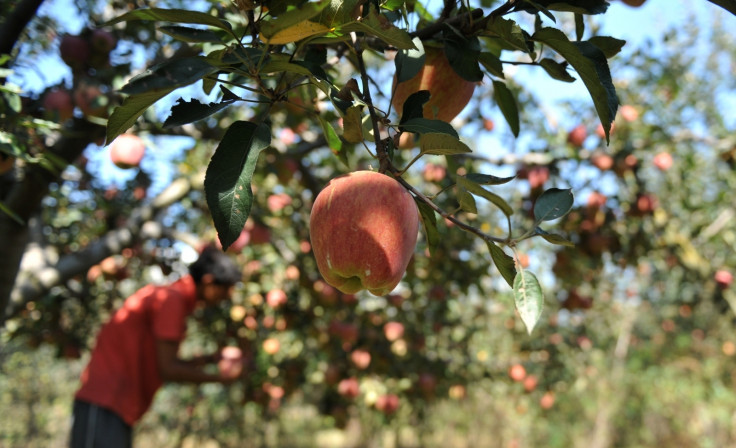Genetically modified, pre-sliced apples that do not brown to soon hit stores – but will they sell?
The apples are reportedly safe for consumption and will be available in 400 stores around the US.
Arctic Apples, made by Okanagan Specialty Fruits, have been designed to specifically not go brown when exposed to atmospheric oxygen. This fruit will soon be sold pre-sliced in stores around mid-western United States.
When apples are dropped, bruised, or cut and their flesh is exposed to the atmosphere, they go brown because of the oxygen in the air. According to the Scientific American, an enzyme in apples called polyphenol oxidase (PPO) readily oxidises to form o-quinones – chemical precursors to the brown substance which, in turn, are formed after they react with proteins in the flesh of the apple.
A team of scientists at the Commonwealth Scientific and Industrial Research Organisation (CSIRO) in Australia was able to simply "delete" the gene that is responsible for encoding the enzyme. As a result, they were able to prevent the fruit from browning, reports Futurism. Regulators in the US assessed the apples for five years before they were allowed to go on shelves.
The apples are being produced by Okanagan in three varieties – Granny Smiths, Golden Delicious, and Fuji. They will be available across the mid-western US in the coming month, says the report. The fruits will be sold packaged as ready to eat, snackable slices. It is, however, not clear if the genetic modification has affected its taste in any way.
Okanagan first started to plant these Arctic Apples in 2003, notes a report in the journal Nature. This apple is also known to be the first genetically modified organism (GMO) food that is consumer facing and not farmer facing. Arctic Apples' genetically modified traits are designed to please eaters and not necessarily farmers or sellers. Arctic Apples are also among the few fully GMO foods that are going to be available as a whole and not as an ingredient.
There is a lot of expectation for Arctic Apples to sell well from the biotech field as there are several products that could potentially make use of similar genetic modification, says Nature. "The apple is not the first GMO that people would eat, but it's the first one that consumers may value," says Lawrence Berkeley National Laboratory in California.
"If the apple sells, it will pave the way for others," says Yinong Yang, a plant pathologist at Pennsylvania State University in University Park who has devised a way to reduce browning in mushrooms using CRISPR, reports Nature.
On whether people would trust a GMO apple, Okanagan co-founder Neal Carter, said that "We're not going to repeat the mistakes of the GMO industries in the past, and just put foods on the market without public conversation." Studies made by the company have reportedly revealed that people tend to be more trusting of its GMO apples when told that they only do not brown and that they have been tested for safety.
However, there are those who are not entirely on board with this development. Bill Freese, a science-policy analyst at the Center for Food Safety, wants the Arctic Apples to be clearly marked as GMO. He argues that not everyone has a smartphone and that the information on the packaging does not explicitly point out to it being GMO.






















